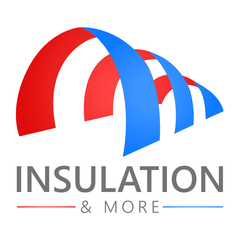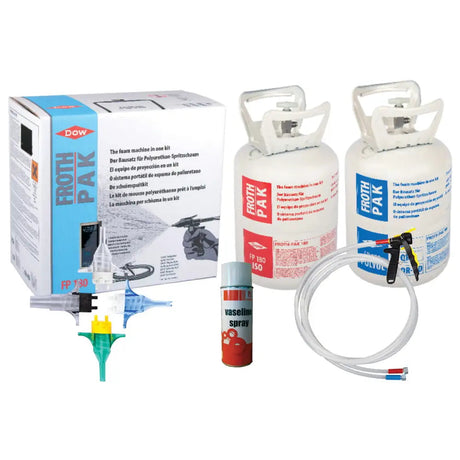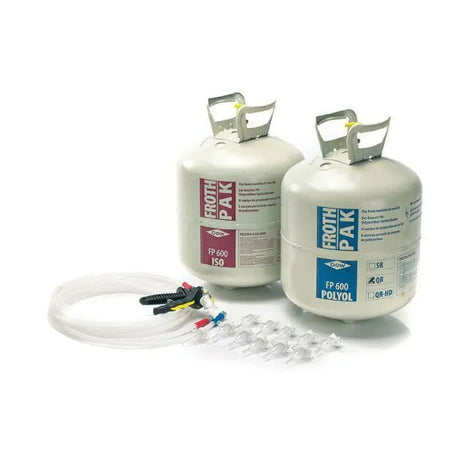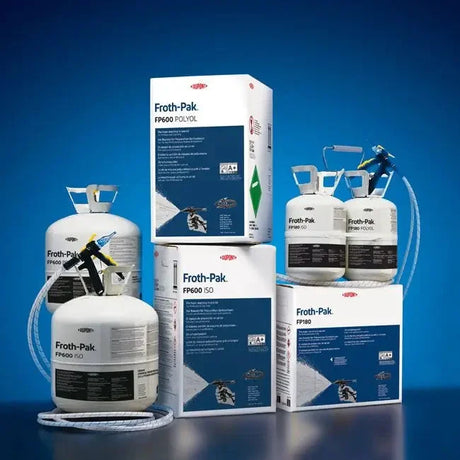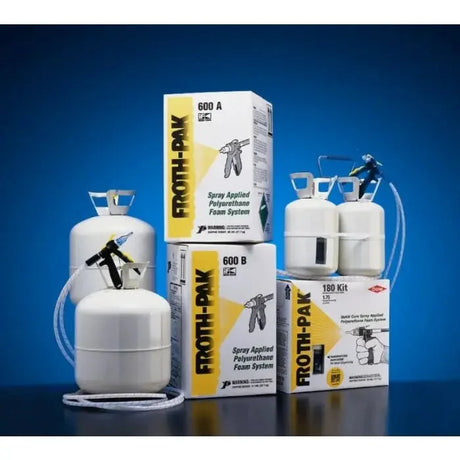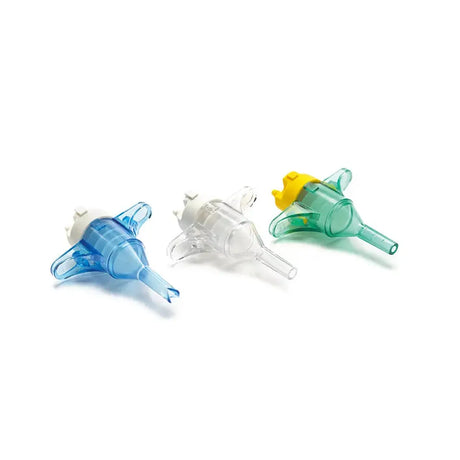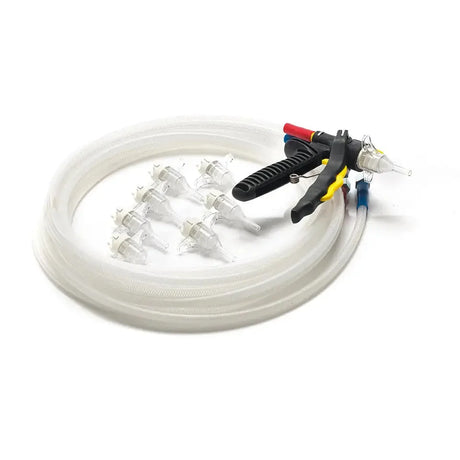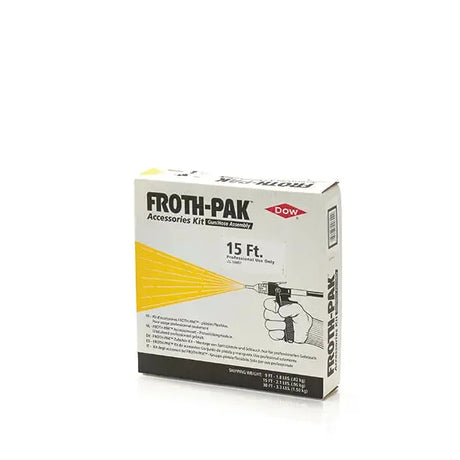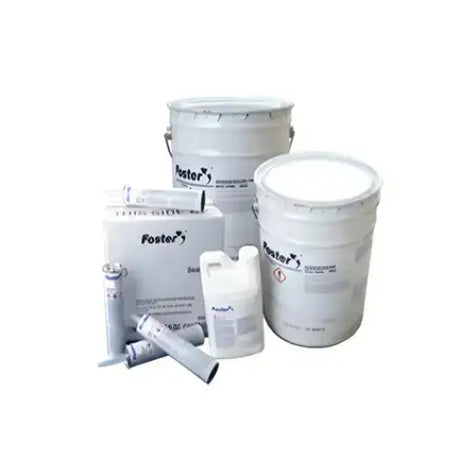Froth-Pak
Froth-Pak Polyurethane Spray Foam Insulation Set
From £52695£60687Unit price /UnavailableFroth-Pak
Froth Pak Gun and Hose Assembly with Nozzles
From £13738Unit price /UnavailableIn stock
Polyurethane foam, often abbreviated as PU, is a class of polymers made up of organic units linked by carbamate (urethane) bonds. Unlike other common polymers like polyethylene and polystyrene, polyurethane is derived from a wide range of starting materials, resulting in diverse chemical structures with various applications.
Types and Applications
- Flexible Polyurethane Foams: Used in doors, windows, sound and heat insulation, waterproof barriers, and fire insulation. They rapidly react with moisture in the air, expanding after application and adhering well to surfaces.
- Rigid Polyurethane Foams: Applied in roofing for excellent heat insulation properties.
- Automotive Sector: Approximately 25kg of PU foam is found in every automobile, with applications in car seats and other components.
- Everyday Products: PU foam is ubiquitous in items like mattresses, upholstered furniture, sponges, medical dressings, filters, and soundproofing systems.
Production and Characteristics
- Manufacturing Process: Polyurethane foam is produced by reacting polyols and diisocyanates derived from crude oil. Additives are incorporated to tailor the foam for specific applications.
- Properties: PU foam exhibits compression and resilience properties, making it ideal for furniture, bedding, automotive seating, athletic equipment, medical uses, packaging, footwear, carpet cushioning, soundproofing, and filtration.
Production Methods
- Slabstock Production: Liquid chemicals are poured onto a conveyor belt where they foam up into large buns. This method is likened to bread rising and is used for producing foam blocks.
- Molding: Raw materials can be poured into molds to create foam items in specific shapes that are challenging to achieve with slabstock production.
Polyurethane foam's versatility and wide-ranging applications make it a valuable material across various industries due to its unique properties and adaptability to different needs.
FAQs for Polyurethane (PU) Foam Buyers
- What is Polyurethane (PU) Foam?
Polyurethane foam is a versatile polymer material made of organic units linked by carbamate bonds, offering a wide range of applications in various industries.
- What are the Key Advantages of PU Foam for Commercial Use?
PU foam provides excellent insulation properties, durability, versatility in shaping, and customization options, making it ideal for diverse commercial applications.
- How Does PU Foam Compare to Other Insulation Materials in Terms of Performance?
PU foam offers superior insulation performance compared to traditional materials like fiberglass or cellulose, providing better energy efficiency and cost savings.
- What Types of PU Foam are Available for Commercial Buyers?
Commercial buyers can choose from flexible and rigid PU foams, each tailored for specific applications such as insulation, cushioning, soundproofing, and packaging.
- Is Polyurethane Foam Environmentally Friendly?
While PU foam is not biodegradable, advancements in eco-friendly formulations and recycling processes make it a sustainable choice for environmentally conscious buyers.
- What Safety Considerations Should Commercial Buyers Keep in Mind When Using PU Foam?
It is essential to follow proper handling procedures, ensure adequate ventilation during installation, and comply with safety regulations to prevent health risks associated with PU foam exposure.
- How Can Customization Options Benefit Commercial Buyers of PU Foam?
Customizable features such as density variations, flame retardant additives, color options, and specific certifications allow commercial buyers to tailor PU foam to their unique requirements.
- What Quality Standards and Certifications Should Buyers Look for When Purchasing PU Foam?
Look for certifications like British Board of Agrément (BBA) Certification or REACH (Registration, Evaluation, Authorization, and Restriction of Chemicals) or British Standards Institution (BSI) Certification that ensure the foam meets stringent quality and safety standards, guaranteeing a reliable and high-quality product.
- What Factors Influence the Pricing of PU Foam for Commercial Buyers?
Pricing factors include foam density, customization requirements, volume discounts, delivery logistics, and additional services like cutting or shaping that may affect the overall cost.
- How Can Commercial Buyers Ensure Long-Term Performance and Durability of PU Foam Products?
Proper installation techniques, regular maintenance checks, adherence to manufacturer guidelines, and selecting the right type of PU foam for specific applications are crucial for ensuring longevity and performance.
